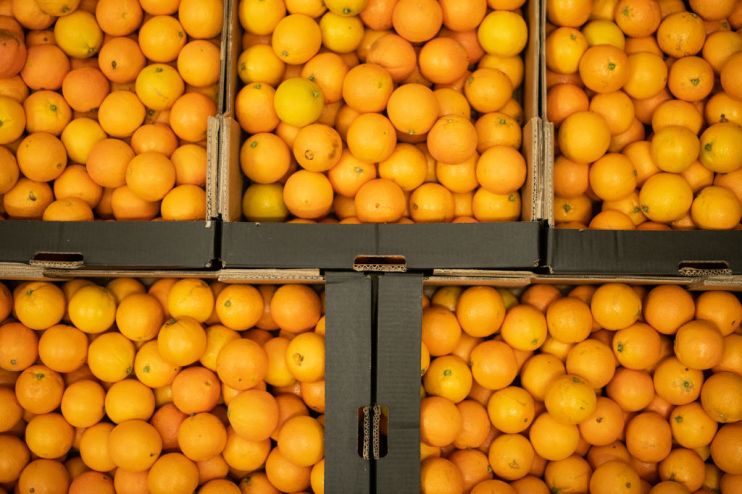The turf wars for on-demand delivery won’t be won with a fast and dirty business model

Getir, Dijia, Weezy, Zapp and Fancy. There is a handful of the new on-demand grocery delivery apps that have flooded London’s streets over the last few months. Behind each of them is a fierce turf war for customers, as they try and capitalise on the now ubiquitous presence of food delivery.
The surge of grocery apps is a by-product of what is known as “service transference”. In other words, when we experience a transformational service in one place and we come to expect it across all categories. It could just as easily be dubbed the Uber effect or the Deliveroo effect.
Lockdown was the catalyst for this. People have come to expect Deliveroo speeds across food and grocery stores. If you can shop at your local Coop, Waitrose or Sainsbury’s on Deliveroo and have it delivered in half an hour, why would you spend days waiting for a slot on Ocado?
This expectation is reflected in customer attitudes towards existing delivery services too. In this year’s online supermarket survey from Which?, Ocado, long seen as a convenient option, tied for fifth place. This was put down to unreliable time slots and wait times.
Enter the new wave of on-demand grocery apps on the market. Most, if not all of them, are rightly focussed on speed of delivery, but the prize of market saturation is still up for grabs.
Getir has launched an aggressive marketing campaign in central London. Weezy promises to deliver the antithesis of Ocado, promising to deliver local produce, with millennial-friendly branding. Other brands, such as WeBother, are trying to carve out the household goods corner of the market. Buy your groceries fresh, they say, for all the boring bits, buy it through them.
Current frontrunners appear to be Dija and Weezy, whose brands reflect a hyper local, fast and seamless experience with a tone that feels un-delivery like with a simple and easy to navigate app. While currently based in London, both have plans to expand this summer and Autumn. Fancy similarly is picking up pace, by clearly targeting students with its expansion plans. All three are running heavily promoted social campaigns to target and pick up early adopters.
Then there are the global players. While data on each platform’s customer base isn’t yet readily available, multi-national companies like Getir and Gorillas will inevitably be more established. Acquisition could shake this up further: Dija recently took over Cambridge based Genie and US delivery company GoPuff announced it was buying into Fancy.
While speed, convenience and targeting advertising will allow each grocery app to enter the market, the eventual frontrunner will be decided by their reputations.
In order to really build long term relationships, brands need to create offerings that propel people forward in a way that reflects a post-lockdown mindset. People are more interested in eating well, spending less, wasting less, shopping local and choosing brands that treat employees well. Living in cramped quarters and eating out of plastic containers has made people more aware of the need to have sustainable living habits.
It’s not yet clear whether people will give up their trips to the supermarket or the off-licence or if they will be willing to shell out extra cash for delivery as lockdown restrictions ease.
Each of these apps need to reach further into the future and add value for customers after their purchase. They must focus on connecting their customers to local shops, rather than offering a depersonalised service which dumps deliveries on the doorstep.
Currently the value in these companies lies in the ethos of “a new way to shop”. Dija and Weezy are leading the brand experience, both in terms of look and feel, with a lighter, more human experience, and an easy to use system. Weezy is positioning itself as the antithesis of a robotic shopping experience with ads promising its users will say goodbye to “unexpected item in bagging area”.
Dija has a strong focus on social responsibility. The brand promises to invest in its own fleet of electric vehicles, partnering with local charities and donating excess food. While there is currently little visibility of how this is playing out, it could come through as a point of differentiation in the future, when the market reaches its peak.
While Getir and Gorillas have strong ratings, the multinational enterprises will have to work harder to hit the mark on hyper local and human. This means their only leverage is convenience.
Gorillas is trying to prove its credentials by treating its riders well, offering a competitive £11.50 an hour salary plus tips to their drivers. While the employee-first route is a smart one, the business must be careful of the pressure it puts on its riders and the safety training it offers in order to fulfil on both its speed and welfare promises.
These businesses, Gorillas in particular, can learn a lot from the rapid growth of Deliveroo. But there is another lesson after the failed IPO: fast and dirty delivery won’t be the crowning glory for on-demand delivery.